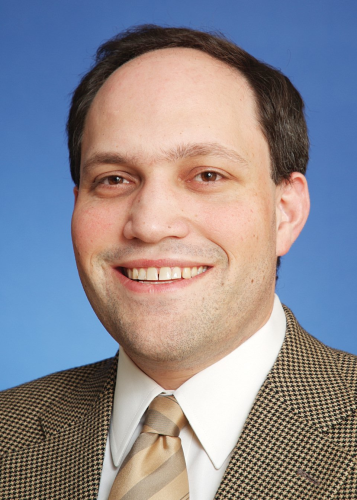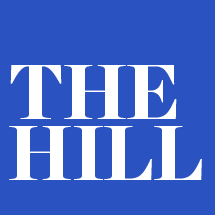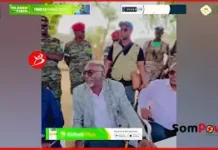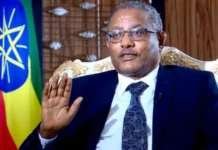Michael Rubin oo ah sarkaal hore uga tirsana waaxda difaaca ee Maraykanka (Pentagon), ahna Khabiir hawlgallada Militari ee NATO siiya duruusta la dagaallanka kooxaha Argagixisada loogu yeedho ayaa qormo uu qoray ku sheegay in dawladda Maraykanka iyo Qaramada Midoobay Soomaaliya ku wadaan qorshe khaldan oo ay hore ugu isticmaaleen dawladdii Ciraaaq ee burburtay.
Waxa uu sheegay in gadoominta Somaliland iyo Kurdiyiintu yihiin caqabadaha hor taaggan dawladnimo ka hana qaadda Muqdisho iyo Baqdaad.
Wasaaradda arrimaha dibadda Maraykanka iyo hay’adda horumarinta caalamiga ah (State department & USAID) waxay Soomaaliya ku maalgalinayaan sanadkan inka badan shan boqol oo milyan oo dollar( $500 Million). Taas oo dheeraad ka ah inkabadan hal billan oo dollar oo hay’addaha Qaramada Midoobay ku maalgalinayaan. Midka kasta wuxuu filaya in ay Somalia ku soo celinayso barwaaqo iyo xasillooni laakiin, way khaldan yihiin.
Taas bedelkeeda xeeladda Waaxda Arrimaha dibaddu waxay kaliya cashuur bixiyeyaasha (Maraykanka) ka luminaysa lacagta iyada oo suuro gelinaysa in Alqaacida dib ugu xooggaysato gobolkan muhiimka ah ee Geeska Afrika,” Sidaas ayuu Mr Michael Rubin ku yidhi qormadiisa.
“Mushkiladda waxa sal u ah awoodda la ururinayo. Waxa la go’aansaday in dhammaan lacagta la geeyo Muqdisho,” Sidaas ayuu yidhi isaga oo intaas raaciyay in Washington iyo Qaramada Midoobay mar kale isticmaalayaan xeelad guuldarraysatay oo ay hore ugu isticmaaleen nidaamkii Saddaam Xuseen ee Ciraaq oo uu ku doodayo in lacagihii badna dano gaar ah looga faa’iidaysto kuwaas oo ka duwan wixii ay doonayeen dhinacyada lacagta bixinaya. Waxa kale oo uu sheegay in nidaamkii Siyaad Barre iyo kan Saddaam Xuseen iska metelayeen kalitalisnimo iyo dagaalladii Somaliland iyo Kurdistaan ay ku qaadeen.
Wuxuu sheegay in Kurdida iyo Somaliland ay haystaan gadoomin kaga imanaysa Maraykanka iyo Qaramada Midoobay maaddaama aanay la shaqaynayn “Diblamaasiyiinta iyo shaqaalaha ururada (NGOs) ee bookhda waxay qirayaan in farqiga u dhexeeya Somaliland iyo Soomaaliya u cad yahay sida habeenka iyo maalinta; Soomaaliya waxay ka mid tahay waddamada ugu khatarsan Adduunka, Somaliland-na waa meelaha ugu ammaansan Afrika. Madaxweynaha Soomaaliya wuxuu maamula in yar oo agagaarka Muqdisho ah isaga oo ku tiirsan ciidamo shisheeye oo difaaca, halka Somaliland maaraysay ammaanka dhul leeg Missouri(gobol Maraykanka ah) bilaa caawimo dibadeed. Soomaaliya baarlamaan laftiisa la magacaabay ayaa madaxweynaha doorta, halka Somaliland doorashadii u dambeysay ee madaxweynuhu ahayd tan kaliya ee Adduunyada loo isticmaalay qalabka bu’da isha sawira si loo ilaaliyo,” Sidaas ayuu qormadiisa ku yidhi khabiirkani.
Waxa uu sheegay in xoghayaha arrimaha dibadda Mr Pompeo iyo madaxa USAID Mark Green minguuriyeen siyaasaddii madaxdii ka horaysay, islamarkaana lacagta oo dhan ku shubayaan Muqdisho taasna ay sii kordhinayso musuqmaasuqa, awoodna siinayso in Alqaacidadu sii balaadhato.
Waxa uu sheegay in Waaxda Khaarajiga iyo USAID umalaynayaan in lacagta oo dhan oo la geeyo Muqdisho saacidayaan soo kabashada Soomaaliya, islamarkaana ay ilaalinayaan xuduudaha Afrika laakiin, maamka Somaliland ku yaallo maamka heshiisna ku samaysan yahay.
Waxa uu sheegay in Soomaaliya musuqmaasuq ragaadiyay lacagahaasna gacmo aan loogu talo gelin ku dhacayaan, halka uu Somaliland ku majeertay adeegyada lacagta telefoonnada la isugu diro oo tixraac leh iyo in ay ka hufan tahay Soomaaliya.



















